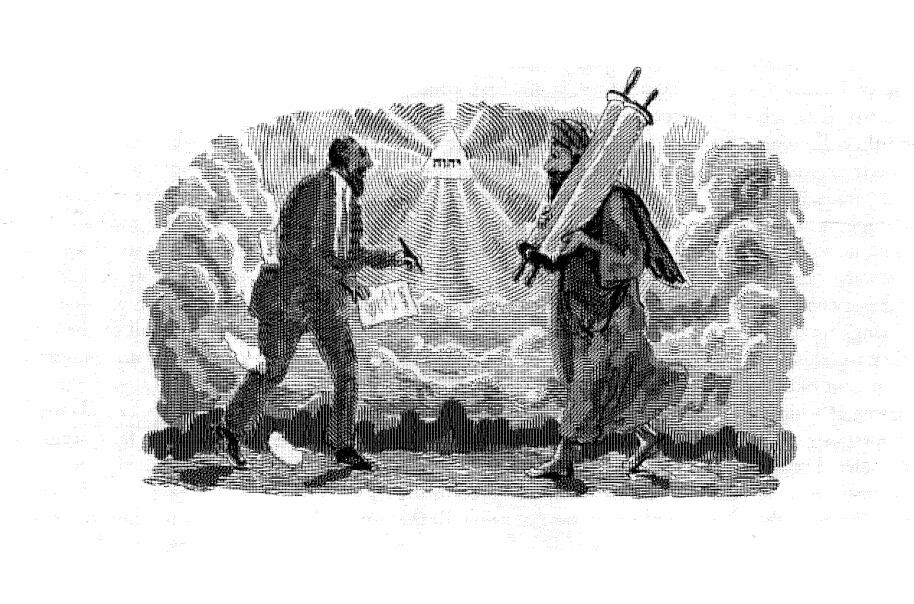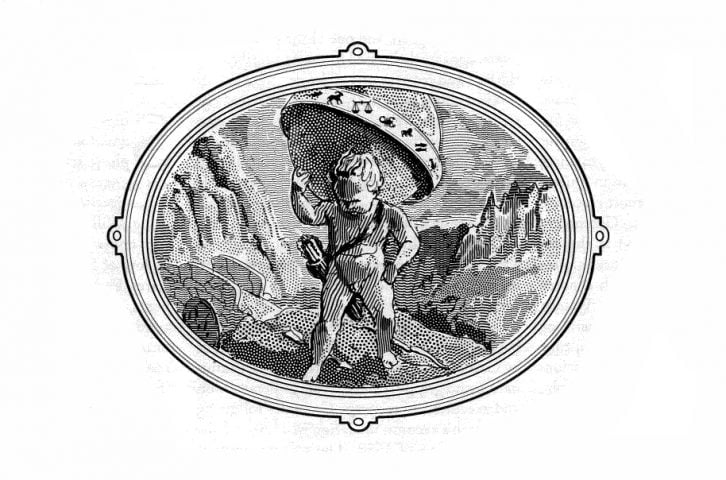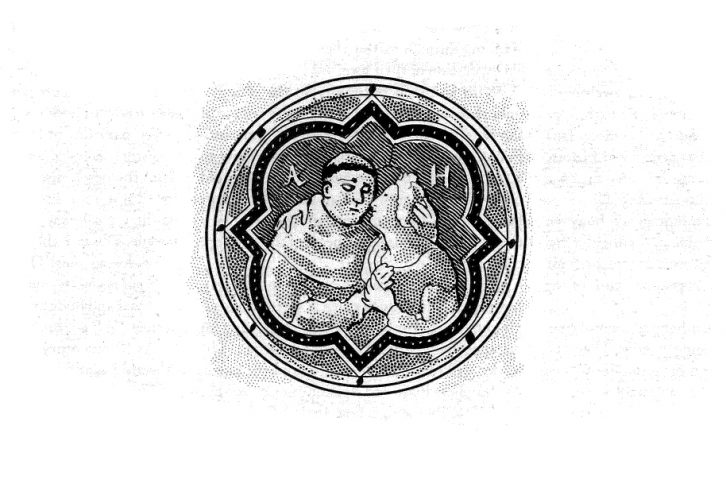Books Reviewed
“A, my lorde Arthur, what shall becom of me, now ye go frome me and leve me here alone amonge myne enemyes?”
“Comforte thyself,” seyde the kynge, “and do as well as thou mayste, for in me ys no truste for to truste in. For I muste into the vale of Avylyon to hele me of my grievous wounde.”—Thomas Malory
In 1971, with the publication of his first novel, the Miernik Dossier, Charles McCarry began the story of American gentleman, scholar, poet, and spy Paul Christopher. Thirty-three years and five novels later, with the publication of Old Boys, that story has drawn to an apparent close. Along the way, McCarry also produced a late 17th/early 18th-century historical romance about Christopher’s first New World ancestors; two nicely plotted and famously prophetic political fictions (the first, written in 1979, involved suicide bombings before their time; the second, written in 1995, concerned a constitutional crisis similar to that of the 2000 presidential election); and a fabulous (and fittingly pornographic) tale about an American politician who is reminiscent of Bill Clinton, purports to be the illegitimate son of JFK, and is a Soviet sleeper agent married to his handler. All are good reading, but the six Paul Christopher novels are McCarry’s most compelling.
As recorded in The Last Supper, Christopher was born on Flag Day, June 14, 1924, of a Puritan Yankee father and a German mother who make a reputation in the 1930s smuggling German Jews to Denmark on their yawl Mahican (one of many allusions to the Leatherstocking saga in these books). On September 1, 1939, the day the Wehrmacht invaded Poland, Christopher and his father were granted safe passage to America by arrangement of his mother, Lori—an arrangement requiring her to remain behind as the mistress of Reinhard Heydrich, a murderous Nazi art aficionado. After arranging to have Heydrich killed, Lori mysteriously disappears and becomes the lost grail for both her husband, who is murdered in the search early on, and her son, whose quest ends successfully (more or less) six decades later in Old Boys.
Paul Christopher’s own disappearance—and reported death in China—sets the plot of Old Boys in motion. His cousin Horace Hubbard and five other former colleagues in the “Outfit” (as the CIA is known in McCarry’s novels) come out of retirement to follow his trail. Nazis, Communists, Islamic terrorists, Russian mobsters—you name it, all the usual 20th-century suspects are somehow involved. Complicating the mission are a dozen cobalt-sheathed dirty bombs, an ancient manuscript called the “Amphora scroll” that threatens the credibility of Christianity, and the rumored return from the grave of an evil descendant of the Prophet Mohammed. James Angleton’s “wilderness of mirrors” is fully operational: “Here I was in this prehistoric world,” Horace writes early on from a Brazilian rainforest, “on the recommendation of a man I scarcely knew who had no reason to wish me well, in pursuit of a cousin who might be dead and a mad Arab who might not be.” Under the circumstances this cohort of septuagenarian spies, acting independently of the now-bureaucratized Outfit, do themselves proud. Indeed, it is fair to say that they save Western Civilization as we know it.
But is the West as we know it worth the trouble? These “old boys” have saved it before, after all, and for what? As Horace’s airplane descends into Vienna, he reflects bitterly on modern Europe:
How romantic such destinations had seemed when Charley and I were young and the Outfit was handing out scraps of the trembling Old World to kids like us and instructing us to preserve them from evil. How dreary they seemed, now that we had slain the dragon and discovered that the damsel, far from crying “My hero!” pined for the loathsome creature.
There is a wistfulness in the book about America as well. Christopher and his contemporaries, it suggests, represent a vital but dying American breed. “I could practically feel the audience responding in one weepy collective thought: They don’t make men like this any longer,” Hubbard observes while eulogizing his cousin. Clearly the younger generation of spies, who ridicule the “old boys” as “out of date, out of the loop, senile,” and who talk like Oprah— “Thanks for sharing,” one says to Hubbard, setting the latter’s teeth on edge—are unworthy inheritors of their elders’ mantle. In the 1950s, Christopher’s oldest friend and fellow intelligence officer David Patchen had compared Washington, D.C., to “an Athens or Rome that had not yet been informed of the glories that awaited it…pregnant with the history of the future.” A half century later, elegy has replaced destiny.
* * *
Old boys, then, partakes of some of the “greatest generation” romanticism that has been partly thrust upon, but also partly adopted (and certainly embraced) by the heroes who won World War II, came home to college on the G.I. Bill, and dominated American government for decades. (McCarry, who covered WWII for Stars and Stripes and went on to become, among other things, a deep-cover CIA agent himself, is a member of that generation in good standing.) And while it is pious and correct of younger Americans to forgive that romanticism, we shouldn’t lose sight of its extraordinary character. Previous “greatest generations” —Jefferson’s, say, or Lincoln’s—did their good work and left rankings to others, perhaps out of a respect and awe for the past that seems to have gone missing in post-WWII America. Might it not have been more natural, after all, for Patchen—walking the streets of Washington—to have found it pregnant with the history of the past? In any case, the implicit claim that the aging and dying protagonists in Old Boys are irreplaceable invites us to take their serious measure.
They are patriots to be sure. Paul Christopher, in a life full of intense and mostly tragic personal relationships, is never able to express romantic love, or even fully to feel it; e.g., in The Secret Lovers, arguably McCarry’s most artful and affecting novel, Christopher’s incapacity for sexual jealousy (job-related, of course: what is there in life but deception?) drives his first wife mad. But when President Kennedy is killed—in Tears of Autumn, a book in which Christopher solves JFK’s assassination to any sensible reader’s satisfaction, albeit not to the delight of the U.S. government—he weeps and confesses (to a priest in a Congolese airport), “I love my country.” Likewise in Old Boys, hearing of his cousin’s apparent death, Horace Hubbard remarks on the nobility of dying for one’s homeland. McCarry’s spies contrast well in this respect with John le Carré’s, far too world-weary for such sentiments.
Connected to this patriotism is a profound contempt for the 1960s counterculture. In Second Sight, David Patchen likens that counterculture to the German Wandervogel, the precursor to the Hitler Youth. He is equally scornful of the media elite that came to embody its revolutionary élan:
In late twentieth century Washington, certain politicized segments of the news media exercised many of the functions belonging to the secret police in totalitarian countries. They maintained hidden networks of informers, carried out clandestine investigations, conducted interrogations on the basis of accusations made by anonymous witnesses and agents provocateurs, and staged dramatic show trials in which the guilt of the accused was assumed and no effective defense was allowed.
McCarry, it should be mentioned, was a friend and confidante of Richard Helms, a bête noire of the left-leaning media and their political allies in the post-Watergate period. These are the people at whose hands, Patchen laments, “the Outfit had been robbed of its reputation” and rendered “almost incapable of operating as a secret intelligence service.” They “instinctively loved their country’s enemies better than they loved their country.” We know them well. They are with us still.
In the post-9/11 world of Old Boys, hatred of the U.S. is on the rise abroad as well. Before the fall of the Soviet Union, Horace recalls, “anti-Americanism had usually been skin deep; everyone but the stomach-acid left had liked us well enough in private, and even some of them had a little bit of kindness for us. Nowadays it was a pathology, like anti-Semitism.” The diagnosis rings true. But what do the “old boys” have to pass on, even as they pass from the scene, to counter this pathology? What underlies their refreshing patriotism? Surprisingly, not much.
“All my life I’ve believed that the truth is worth knowing, even if it leads to nothing,” Christopher says in Tears of Autumn. “It usually leads to nothing. But what else is there?” (Ironically, in the circumstances in which he is speaking, it leads to the violent death of his best-beloved and ten years for him in a Chinese prison camp.) But again: “They [Christopher and Patchen] knew, because they had spent their lives doing it, that it was possible to break open the human experience and find the dry truth hidden at its center…. Their work had taught them that the truth, once discovered, was of little use.” “Dry” is the operative word: what the “old boys” call truth is not the stuff that sets men free.
* * *
The Christopher saga puts little stock in faith or reason. The former is represented almost solely by fanatical Muslims, and Christianity is treated as an object of faux-intellectual hostility. The “Amphora scroll” in Old Boys is a “fifth gospel” portraying Christianity as an unintended consequence of an ill-conceived Roman intelligence operation gone bad. Reflecting on the scroll, Horace lumps St. Paul with the Prophet Mohammed and Karl Marx as “bent geniuses” of the kind who appear once a millennium or so and wreak havoc with mankind. This subsidiary plot line in Old Boys might be dismissed as simply quirky, were it not that it reinforces a persistent theme in these novels.
In Second Sight, the revered director of the Outfit (referred to as “the O.G.,” for “old gentleman”) recalls “the truest sentence Hubbard [Paul Christopher’s father] ever wrote” —namely, that “Two thousand years of Christian teaching produced the SS.” (Echoes of Graham Greene, another novelist with whom McCarry is often compared; Greene’s leading man in The Quiet American says of a colleague: “he was a Christian—one of those who had learned from Nero how to make human bodies into candles.”) The O.G. concludes that “Any Christian nation was capable of slaughtering the Jews; believe me, there would have been no shortage of volunteers to run the death camps in Russia or France or England or even in the good old U.S.A.”
Paul Christopher himself, after parroting his father’s charge against Christianity in Tears of Autumn, condemns all “intellectual systems” equally—his beloved America’s included: “The system of the Ghanaian tribe is as sensible as Christianity or your own family’s sense of aristocracy, or what the Americans call the dignity of the individual” (italics added). The Vietnamese girl to whom he is speaking concludes that Christopher must then believe in nothing, to which he responds by embracing the idea of “consequences.” Just as the consequence of Christianity’s intellectual system was the SS, he explains—sounding every bit like an avatar rather than critic of ’60s pop-nihilism—the result of America’s was “the Hiroshima bomb.” The only purpose of such systems is “to justify the exchange of death.”
Subsequent to his deep-cover work in the CIA (and a stint as a speechwriter in the Eisenhower Administration), Charles McCarry was a longtime editor-at-large for National Geographic, and as the author’s notes concluding his novels make clear, he takes pride in the verisimilitude of his depictions of remote landscapes, lost tribes, ancient cultures, even the migratory habits of birds (those of the Houbara Bustard are critical to the plot of Old Boys). One presumes he is as careful in delineating the minds of the Americans he knows best—his generation’s “best and the brightest,” who flocked from America’s elite universities in the 1940s and early ’50s with an unbridled enthusiasm for “public service.” Christopher, Patchen, and Hubbard are Yale men—not surprisingly, given Yale’s longtime special relationship with American intelligence. (Robin Winks, in Cloak and Gown: Scholars in the Secret War, 1939-1961, traces this relationship from Nathan Hale to the modern era, when, for example, 42 members of Yale’s class of 1943 enrolled in the OSS, and many more joined other branches of intelligence.) In this light, McCarry’s novels could be read to support William F. Buckley’s thesis in God and Man at Yale—that by 1950 elite higher education was already operating to strip young Americans of any inherited “illusions” that God is in his heaven or that freedom (based on the “dignity of the individual”) is objectively superior to any other ground of political life. (McCarry said in a recent interview that in his decade in intelligence work he never met a Republican, not one.)
To repeat, the “old boys” are patriots. But their allegiance is to what, exactly? Not to the Constitution: In McCarry’s two fine political books, The Better Angels and Shelley’s Heart, Horace Hubbard, the narrator and hero of Old Boys, is complicit in a plot (by a secret cabal of Yale alumni, of course!) to subvert a presidential election. Nor, clearly, to the idea of American exceptionalism; nor to Christendom as represented by what Michael Moore, after the 2004 election, bitterly dubbed “Jesusland.” Such attachments would have required the “old boys” to look backward; but their thinking seems formed by the Progressive view that (in Woodrow Wilson’s words) “the future, not the past” is “the more glorious time in comparison with which the present is nothing.” They sought to make, not preserve a world. And when in the end they find it pretty much the same, they are disillusioned; and the future looks bleaker than it is.
Old Boys concludes with Horace and his ancient colleagues toasting Paul Christopher over his empty grave. Known only to them, he has retreated to a secret and quiet place with his long lost mother. His retirement is deserved, even as he and his friends deserve honor for their achievements and sacrifices in the century’s great conflicts. But there’s neither reason nor time to mourn for our country at their passing.









